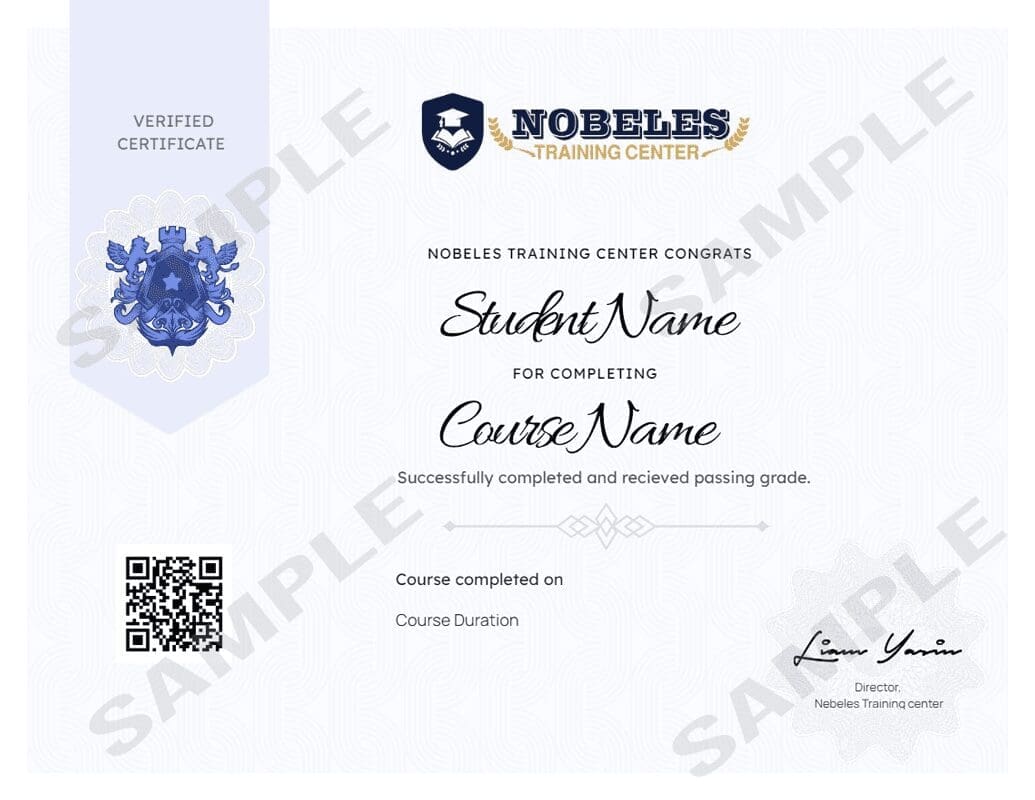Description
Curriculum
Instructor
We’ve all met that dynamic, charismatic person that just has a way with others, and has a way of being remembered. Participants will identify ways of creating a powerful introduction, remembering names, and managing situations when you’ve forgotten someone’s name.
The Interpersonal Skills course will help participants work towards being that unforgettable person by providing communication skills, negotiation techniques, tips on making an impact, and advice on networking and starting conversations. They will also identify the skills needed in starting a conversation, moving a conversation along, and progressing to higher levels of conversation.
Please enter your name and email to view the content:
Curriculum
- 11 Sections
- 11 Lessons
- 8 Hours
Expand all sectionsCollapse all sections
- Verbal Communication SkillsVerbal communication skills involve effectively conveying ideas and information through spoken language. Key elements include clarity, tone, active listening, and adaptability, fostering understanding and building strong relationships in personal and professional settings.1
- Non-Verbal Communication SkillsNon-verbal communication skills encompass body language, facial expressions, gestures, and eye contact. These cues enhance verbal messages, convey emotions, and foster connections, playing a crucial role in effective interpersonal interactions.1
- Making Small Talk and Moving BeyondMaking small talk involves initiating light, casual conversations to break the ice. Moving beyond requires deepening the dialogue with open-ended questions, sharing personal insights, and actively listening to build meaningful connections.1
- Moving the Conversation AlongMoving the conversation along involves transitioning smoothly between topics, using active listening to identify cues, asking engaging follow-up questions, and maintaining a positive flow to keep the dialogue dynamic and engaging.1
- Remembering NamesRemembering names is essential for building rapport and demonstrating respect. Techniques include repeating names during introductions, associating names with visual cues, and practicing active engagement, which enhances connection and shows genuine interest.1
- Influencing SkillsInfluencing skills involve the ability to persuade and motivate others through effective communication, empathy, and credibility. Building trust, understanding different perspectives, and articulating clear benefits are key to successfully influencing decisions and behaviors.1
- Bringing People to Your SideBringing people to your side requires building rapport, understanding their needs, and presenting compelling arguments that resonate with their values. Active listening, empathy, and collaboration foster trust and encourage alignment toward common goals.1
- Sharing Your OpinionSharing your opinion involves expressing thoughts clearly and respectfully while backing them with reasons or evidence. It’s essential to encourage dialogue, invite differing perspectives, and remain open-minded to foster constructive discussions.1
- Negotiation BasicsNegotiation basics include preparing thoroughly, understanding both parties' interests, communicating clearly, and finding common ground. Active listening, flexibility, and a collaborative approach help achieve mutually beneficial outcomes and maintain positive relationships.1
- Making an ImpactMaking an impact involves effectively communicating ideas, demonstrating authenticity, and inspiring others through action. Building strong relationships, actively listening, and contributing positively to discussions can influence change and foster lasting connections.1
- Post-TestPost-Test1
Nobles Center

5 Students146 Courses
Review
$175.00
283 students
11 lessons
Language: English
0 quiz
Assessments: Yes
Skill level All levels
Nobles Certificate
At the end of the course, you can download a copy of your certified certificate.
Nobeles Academy
Mobile Application
Download the Nobeles center mobile app from the app app store, click the button below
Courses you might be interested in
Working in a home office requires a unique set of skills. Teleworkers or virtual employees have additional challenges created by not being in a centralized office. Communication issues alone make...
-
1 Lesson
$175.00
Having the technical skills and knowledge to successfully execute your job duties is only one part of being the best you can be in the workplace. In addition to these...
-
0 Lessons
$225.00
The cloud has become a vital component for business as technology becomes embedded in modern life. Every leader needs to understand the cloud and how it operates, as well as...
-
0 Lessons
$195.00
Phone skills are a highly valuable tool to have in an employee’s skill-set, and Call Center Training will help provide those skills. This course will help = improve phone skills...
-
0 Lessons
$275.00






